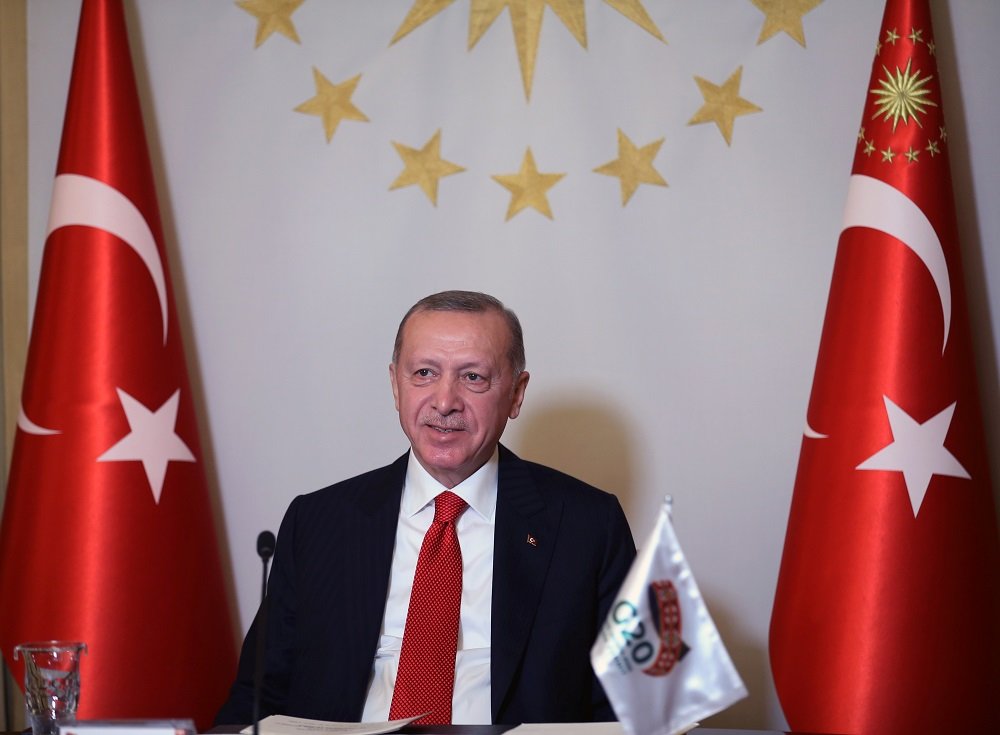
President
Erdogan’s recent economic policy U-turn is to be applauded as an important step
in the right direction to stabilize the Turkish lira. However, it is far from
clear that this alone will be sufficient to restore his tattered economic
policy credibility. To best do that, Mr. Erdogan would be well advised to seek
as soon as possible an International Monetary Fund (IMF) economic support
program.
Until
recently, Turkey’s currency was among the world’s worst performing currencies.
In the first 10 months of this year, it managed to lose around 30 percent in
value with respect to the US dollar. This occurred as investors became
increasingly concerned about Mr. Erdogan’s politicizing economic policy with a
view to securing economic growth at all costs. A particular concern of
investors was Mr. Erdogan imposing his eccentric view on the central bank
that high interest rates were the cause rather than the cure for high
inflation.
One
consequence of waning investor confidence in the Turkish lira has been the depletion of the central bank’s
international reserves as the central bank unsuccessfully tried to defend the
currency. Other consequences have been incipient signs of rising inflation and
growing fears that further currency weakness could be very problematic for
those Turkish companies that have very large US dollar denominated debts.

It seems that
Mr. Erdogan only grasped the seriousness of the Turkish currency crisis when
the Turkish lira recently breached the psychologically important 8 lira to the
US dollar level. This suggested that the currency could soon be in free fall,
which could have had serious economic consequences.
Mr. Erdogan
reacted to the worsening currency crisis by replacing his son-in-law as
Minister of Finance as well as by appointing the internationally respected
and experienced Mr. Naci Agbal to head the central bank. More importantly yet,
Mr. Erdogan has allowed Mr. Agbal to start his tenure at the central bank’s
helm with a hike in Turkey’s interest rates from 10.25 percent to 15 percent in
a sharp departure from Turkey’s previous low interest rate policy.
Markets have
reacted very favorably to Mr. Erodgan’s economic policy U-turn as underlined by
a halt to the currency’s downward trajectory. However, it would seem to be an
open question as to how long this repaired confidence will last, especially if there
is a renewed COVID-related economic downturn in Turkey’s main trade partners.
In a more trying global financial market environment, markets would still seem
to need convincing that Mr. Erdogan will not relapse into another bout of
unorthodox and misguided economic policy intervention.
A surefire way
for Mr. Erdogan to restore policy credibility would be for him to call in the
IMF as Turkey has successfully done in a number of earlier currency crises.
Obtaining the IMF’s seal-of-approval for Turkey’s stabilization policies and
having the IMF monitor policy implementation would provide needed assurance to
markets about the increased prospects of Turkish economic policy consistency.
At the same time, by calling on the IMF’s large lending capabilities, Mr.
Erdogan could reassure markets that Turkey would have the needed firepower to
defend its currency.
Before
dismissing the notion of calling in the IMF out of hand, Mr. Erdogan might want
to recall an analogy made by Rudi Dornbusch, the late MIT economist. Mr.
Dornbusch compared dealing with a currency crisis to dealing with a pouncing tiger but
with only having one bullet in one’s rifle. If one misses that shot, one is in
the greatest of trouble.
Especially with Turkey’s currency having been battered so much over the past two years and with the Turkish corporate sector being so heavily indebted in US dollar-denominated terms, Mr. Erdogan can ill-afford bungling the one opportunity he now seems to have to stabilize the currency. For this reason, Mr. Erdogan would do well-advised to swallow his pride and call in the IMF before it is too late.
The post Turkey still needs the International Monetary Fund appeared first on American Enterprise Institute – AEI.
